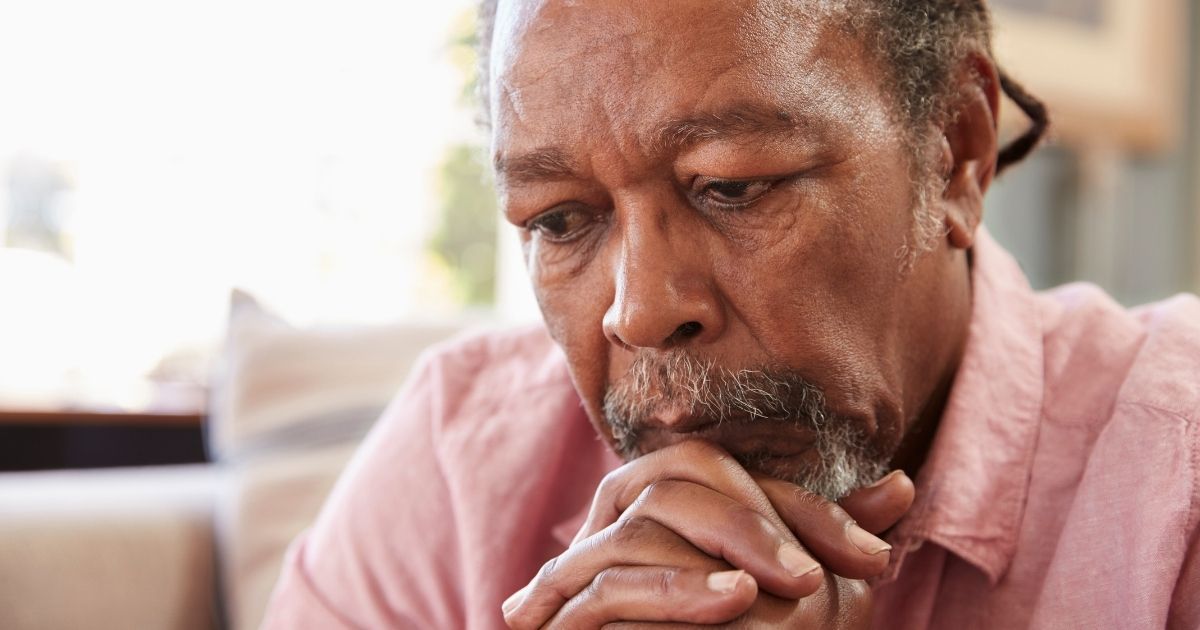According to the National Alliance on Mental Illness (NAMI), more than 6.5 million of the 35 million Americans aged 65 or older are affected by depression. Depression is more prevalent among seniors who are homebound. It’s not a normal part of aging. It interferes with a senior’s daily living and can trigger a downward spiral resulting in a series of health issues.
Unfortunately, many people suffering from depression never seek treatment. But, most seniors suffering from depression can feel better with medications, therapy, and other methods.
Overlooking Depression in the Elderly
Because it’s often mistaken for other aging-related illnesses or loss, depression in the elderly is often ignored. Even seniors may ignore the symptoms, believing what they’re feeling is a result of growing older and that they’re expected to slow down. Reacting to the loss of a loved one is often misunderstood and not diagnosed as depression.
Physical conditions such as heart disease, stroke, cancer, dementia, and chronic pain increase the risk of depression among seniors. Certain medications or a combination of them can also contribute to depression, as does living alone or social isolation. Because of this, treatment often is delayed, and many seniors unnecessarily struggle with depression.
Warning Signs of Depression in Seniors
According to the National Institute of Mental Health, these are warning signs of depression in seniors:
- Persistent sad, anxious, or “empty” feelings
- Feelings of hopelessness or pessimism
- Irritability or agitation and restlessness
- Fatigue and decreased energy
- Feelings of guilt, worthlessness, or helplessness
- Difficulty concentrating, remembering details, and making decisions
- Overeating or appetite loss
- Thoughts of suicide, suicide attempts
- Sleeping too much or too little, awakening frequently
- Loss of interest or pleasure in activities
Though we all have many of these feelings from time to time, when a senior feels this way persistently, it’s time to be seriously concerned and take action.
What To Do if You Notice Any of These Warning Signs
The most important thing you can do is get your senior an assessment, diagnosis, and treatment.
Be Observant
Have a conversation with your loved one and probe how they’re feeling or what’s bothering them. Listen carefully and give them the chance to speak.
Depressed older adults often will talk about the physical symptoms of depression first. They might say things like “I’m not sleeping well” or “I’m just not hungry.” Speak with your home care aide, who may be in the home on a daily or weekly basis, about any changes they’ve observed in behavior, eating, sleeping patterns, etc.
Offer Reassurance
Tell them that with a bit of help, they can enjoy life again. Talking about this with them is the first step. Keep in mind that they may be holding back because they don’t want to be an additional burden for the person caring for them.
By being observant and taking action as soon as you notice any of these warning signs, you’ll be helping your loved one live life to its fullest. These are their golden years; help them be filled with happiness.
Dependable and Affordable Home Care In Southwest Florida
At Seaside Home Health Care, our professional CAREgivers are trusted partners in watching for the warning signs of depression. Our mission is lifting the spirits of those we serve by offering them dependable and affordable home care options. To learn more about Seaside Home Health Care or to schedule a FREE consultation for a senior in Naples, Fort Myers, Charlotte County, or the surrounding areas today, please visit us at www.seasidehomehealthcare.com.





